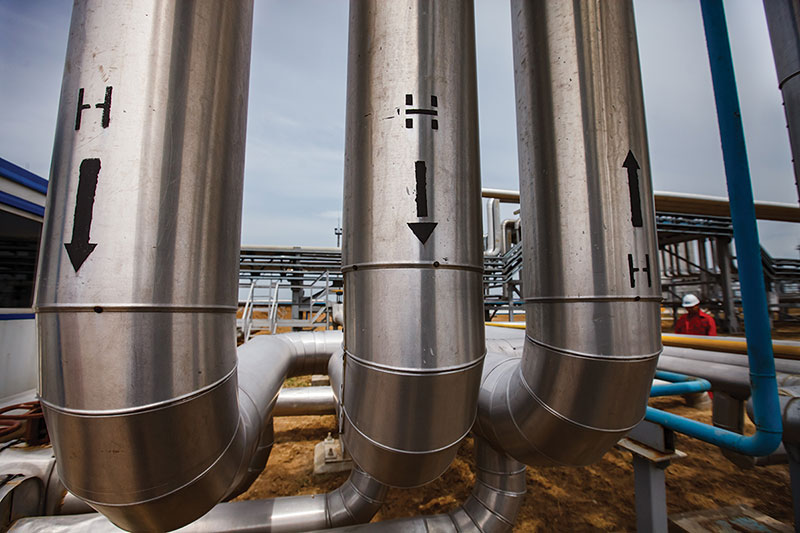Singapore to Conduct Feasibility Study on Proposed Hydrogen Export Pipeline from Malaysia
(Reuters) – On Tuesday, Singapore's City Energy said it will conduct a feasibility study with Gentari, Petronas' renewables unit, on a proposed pipeline to export hydrogen from Malaysia to the city state, with a view to it becoming operational by 2027.
The study will focus on the transport of "low carbon hydrogen" via a pipeline between the Malaysian state of Johor and City Energy's Senoko gasworks plant, City Energy's Chief Executive Perry Ong told reporters.
He did not say whether it would be blue hydrogen, which is created from natural gas, or green hydrogen, created from renewable energy. He also said there was no cost estimate for the project so far or any decision how it would be financed if it goes ahead.
Gentari, owned by Malaysian state-run energy giant Petronas, produces both blue and green hydrogen, according to the company's website.
Gentari and City Energy signed a memorandum of understanding in April agreeing to explore Singapore importing hydrogen from Malaysia.
City Energy, a subsidiary of Keppel Infrastructure Trust, has a total production capacity of 1.6 million cubic meters of town gas, including some grey hydrogen production from natural gas, Keppel's website showed.
Grey hydrogen is created using natural gas but the process generates more carbon emissions than blue hydrogen which captures and stores carbons as it is produced.
"There are many studies right now globally which are looking at different technologies to import in hydrogen but largely they are all focused on putting them on to vessels, on to ships, to cross oceans... But the cost structure for carrying the hydrogen on vessels across oceans are likely to be more expensive," Ong said.
Piped hydrogen could potentially be the lowest cost to import hydrogen into Singapore, given the "relatively short distance" between Singapore and Malaysia, Ong said.
City Energy aims to supply the imported hydrogen mainly to the commercial and industrial sectors, which form the bulk of its customer base at the moment, Ong said.
Related News
Related News

- Keystone Oil Pipeline Resumes Operations After Temporary Shutdown
- Freeport LNG Plant Runs Near Zero Consumption for Fifth Day
- Biden Administration Buys Oil for Emergency Reserve Above Target Price
- Mexico Seizes Air Liquide's Hydrogen Plant at Pemex Refinery
- Enbridge to Invest $500 Million in Pipeline Assets, Including Expansion of 850-Mile Gray Oak Pipeline





Comments